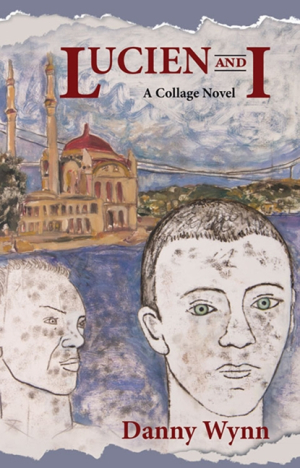It looks like you've stumbled upon a page meant to be read by our code instead of viewed directly. You're probably looking for this page.
Lucien and I
This is an excellent novel-in-vignettes exploring one man’s enviable existence of over-indulgence and fun.
A novel told in vignettes, Lucien and I blends together stories and scenes from all over the world as it depicts the life of middle-aged David and his close relationship with younger Lucien. The narrator begins as a nondescript everyman; a successful businessman in his late thirties, David lives in an apartment in New York and follows routines almost identical to Bret Easton Ellis’s Patrick Bateman of American Psycho. Indeed, David is aware of this himself, praising the characterization of New York and of men like him within the narrative. But rather than experiencing Bateman’s murderous rage and insecurity, David is able to go on a journey of friendship—albeit one that can border on obsession.
This is a novel that forgoes traditional narrative structure, instead embracing a sense of time and place as David goes on a boozy odyssey seeking fun and a revitalization of his life. The novel is undeniably similar to other American authors’ expat works in its embracing of the “other” (other culture, country, etc.) as in some ways superior, or at least liberating. There remains an intentional, slightly confused quality as people and places come and go, allowing the reader to see how the wealthy “bright young things” live life.
The center of Lucien and I, the vortex around which the action and characters circle, is the peculiar relationship between Lucien and David. An uncomfortable mood settles upon the work early, not so much because of the two characters’ obvious age difference, but because of the near-covetous attitude that David takes toward all facets of Lucien’s life: his appearance, his age, his lovers, his seemingly lackadaisical existence. Echoes of Patricia Highsmith’s exceptional Ripley novels are heard throughout; one cannot help but compare the infatuation found in the two. However, while Tom Ripley’s sociopathic tendencies are omitted from this text, so is his charm. David is a sad rather than shocking character, evoking sympathy—and, on occasion, empathy—as he looks into a world of which he cannot truly be a part.
There are some points at which the novel falters, particularly the unrealistic ease with which events occur. Rather than imparting a dreamlike quality, this renders the text as insincere, with an inorganic unfolding of the narrative.
However, David and Lucien’s existence is not like most; as Lucien himself says, “I sometimes find that gliding through…an enriched environment can have certain benefits. … And sometimes one’s presence by itself can exude a certain something to the world.” This is Lucien’s world, one of endless money, friends, cities, and culture, all intertwined to make an enviable life of over-indulgence and fun, and an excellent novel that allows readers to reflect on their own lives and values.
Reviewed by
Alex Franks
Disclosure: This article is not an endorsement, but a review. The publisher of this book provided free copies of the book and paid a small fee to have their book reviewed by a professional reviewer. Foreword Reviews and Clarion Reviews make no guarantee that the publisher will receive a positive review. Foreword Magazine, Inc. is disclosing this in accordance with the Federal Trade Commission’s 16 CFR, Part 255.
